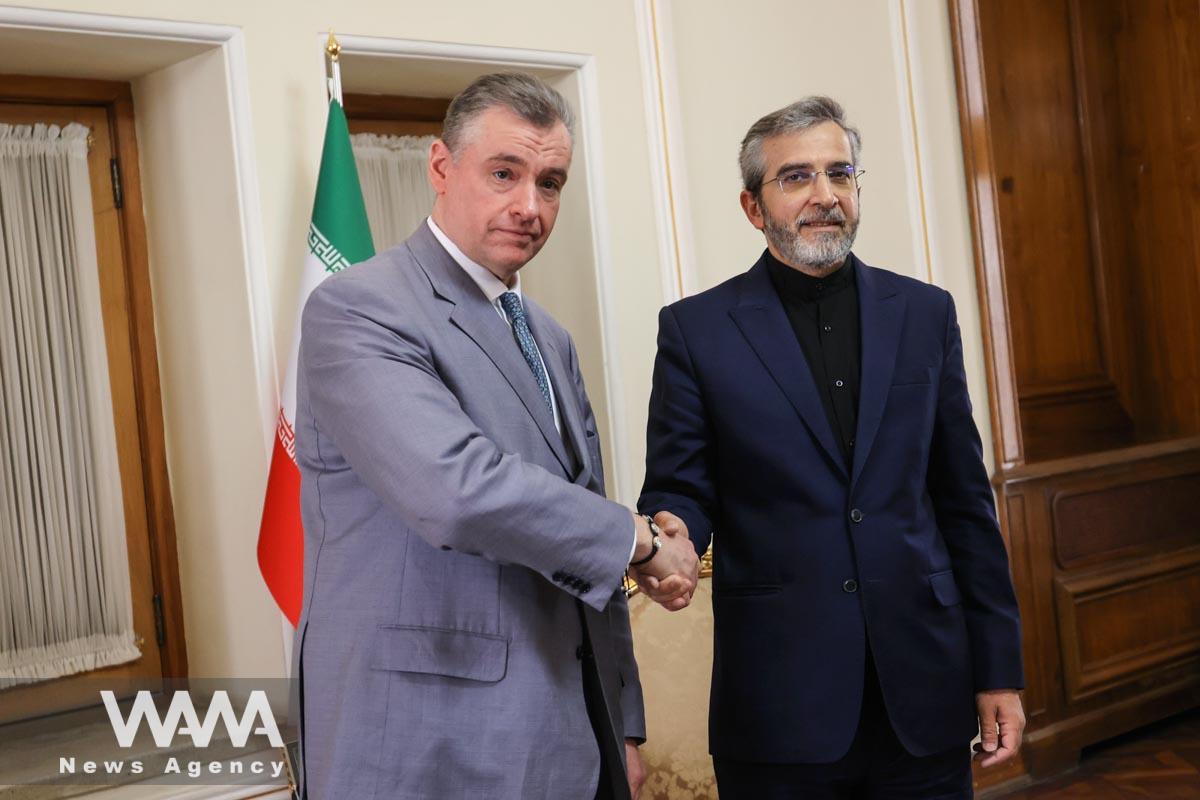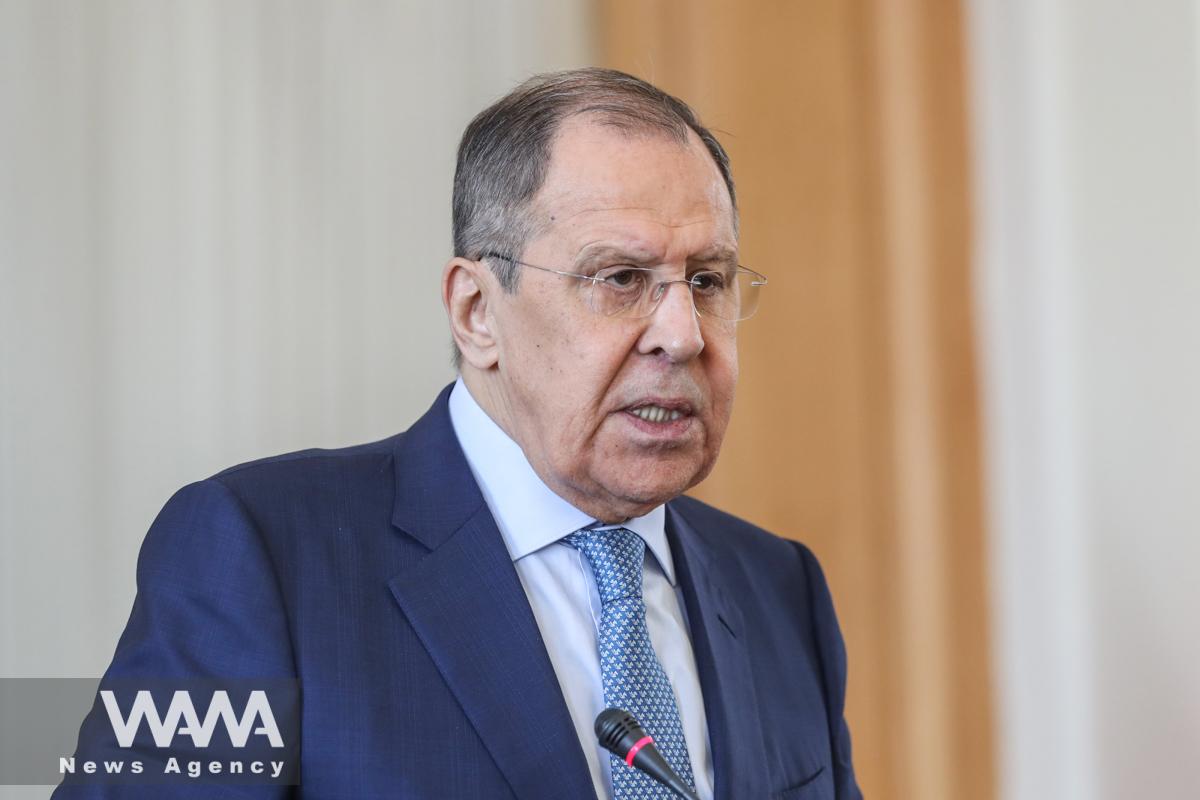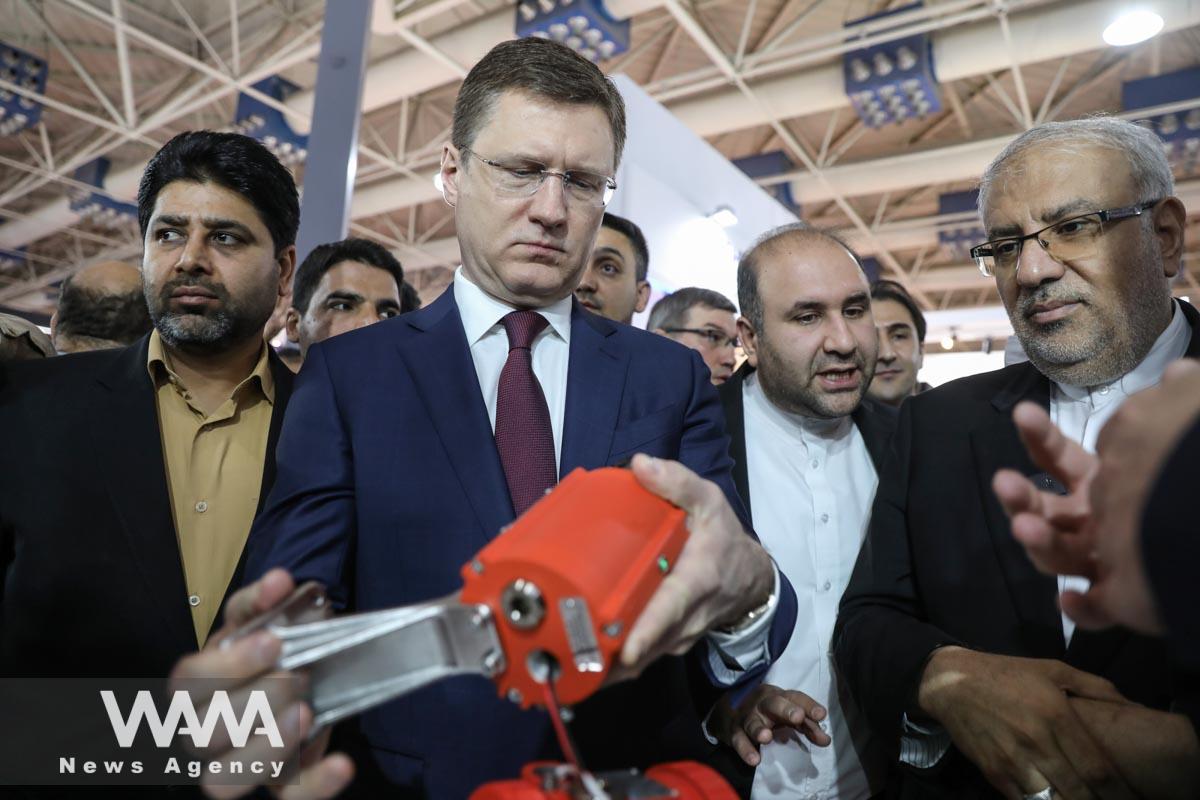Hollywood Scenario Against Iran: Attempt to Undermine Tehran-Moscow Relations
WANA (Sep 02) – In the complex world of international politics, where every move and claim can lead to major changes in the geopolitical landscape, some narratives, even more imaginative than Hollywood films, are presented to the public as reality. One such story is the scenario recently put forth by Ukrainian officials, with a clear objective: creating tension between Iran and Russia.
Last week, the Ukrainian Attorney General issued an indictment against an Iranian Revolutionary Guard commander, accusing him of transferring Iranian drones to Russia and training Russian forces in their use. Could this be part of a larger scheme aimed at undermining the strategic alliance between Tehran and Moscow?

Iran Denies Claims of Iranian Military Presence in Ukraine
WANA (Aug 31) – Nasser Kanaani, the spokesperson for Iran’s Ministry of Foreign Affairs, has responded to recent allegations of an Iranian military presence in Ukraine. The claims suggested that an Iranian military official was in Ukraine to train Russian forces. Kanaani dismissed these accusations as baseless and denied their validity. The spokesperson reiterated […]
Tehran’s Response: Clarification Against Baseless Claims
The Islamic Republic of Iran quickly and firmly responded to these accusations. Nasser Kan’ani, spokesperson for Iran’s Ministry of Foreign Affairs, categorically rejected these claims, emphasizing that such accusations are baseless and politically motivated.
Tehran has consistently advocated for peace and the peaceful resolution of disputes, proposing that independent international delegations be sent to the region to investigate the veracity of these claims. However, Ukraine has not accepted this proposal to date, seemingly due to external pressures.
A Project to Drive a Wedge Between Tehran and Moscow
A closer examination of these accusations reveals that their primary aim goes beyond a bilateral dispute. With the strengthening strategic ties between Iran and Russia, the West, particularly the U.S., is concerned about the broad impact of this cooperation on the region and the world.
Hence, these accusations could be part of a deliberate effort to create distance and weaken this alliance. The expanding cooperation between Tehran and Moscow, especially in military and security fields, shifts power dynamics in favor of these two countries, which is something the West seeks to prevent.

Iran’s acting foreign minister, Ali Bagheri Kani meets with Leonid Slutsky, leader of the Liberal Democratic Party of Russia (LDPR), in Tehran, Iran June 15, 2024. Majid Asgaripour/WANA (West Asia News Agency)
Efforts to Prevent Strategic Cooperation
These accusations have surfaced precisely at a time when Iran and Russia are deepening their military and security cooperation. Is the West, therefore, afraid of the closer ties between Tehran and Moscow? Every tool is being used to prevent the expansion of this cooperation, and Ukraine’s accusations are just the tip of the iceberg in these efforts.
Is Ukraine, supported and guided by Western powers, trying to create new crises to hinder the development of strategic cooperation between Iran and Russia?

Lavrov: Iran and Russia Will Soon Finalize a Comprehensive Agreement
WANA (Sep 02) – Russia’s Foreign Minister, Sergey Lavrov, announced that Tehran and Moscow are on the verge of completing work on a comprehensive bilateral partnership agreement, describing it as a symbolic step in the relations between the two countries under Iran’s new administration. During a meeting on Monday with professors and students at […]
Reality or Political Game?
But are these accusations based on reality, or are they merely part of a larger political game? Iran, emphasizing transparency in its collaborations, has consistently stated its readiness to address these accusations openly in the presence of international bodies. This approach shows Tehran’s commitment to upholding its principles in the international arena and supporting de-escalation and peaceful cooperation.
What emerges from these developments is that Ukraine’s efforts to create a rift between Iran and Russia are part of a broader strategy to undermine strategic cooperation between the two countries. However, this complex game will not end easily. By maintaining unity and transparency in their relations, Tehran and Moscow can navigate these challenges and achieve their common goals.
Time will reveal whether these efforts will succeed or if the world will witness the triumph of a strong alliance over intricate schemes.

Russian Deputy PM Alexander Novak and Iran’s Petroleum Minister Javad Owji visit Iran’s International Oil, Gas, and Petrochemical Exhibition in Tehran, Iran, May 17, 2023. WANA (West Asia News Agency)













